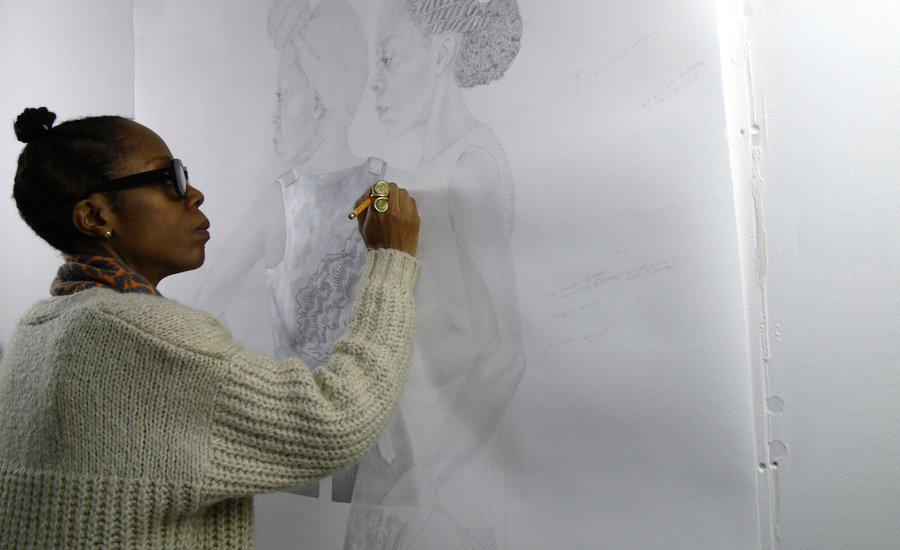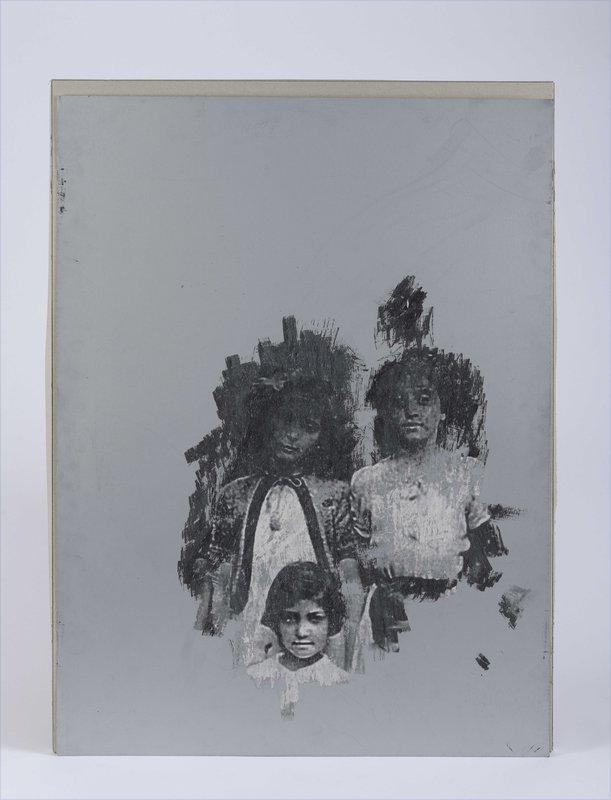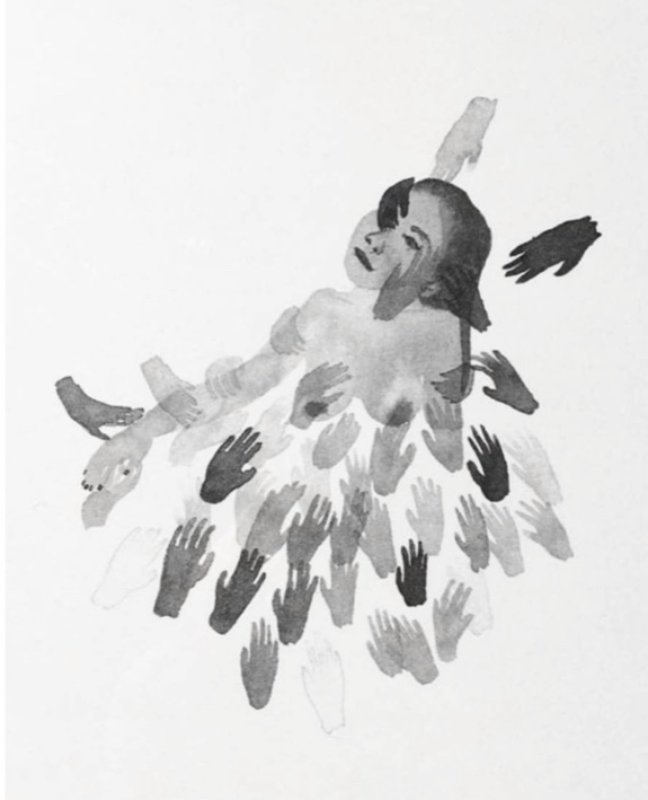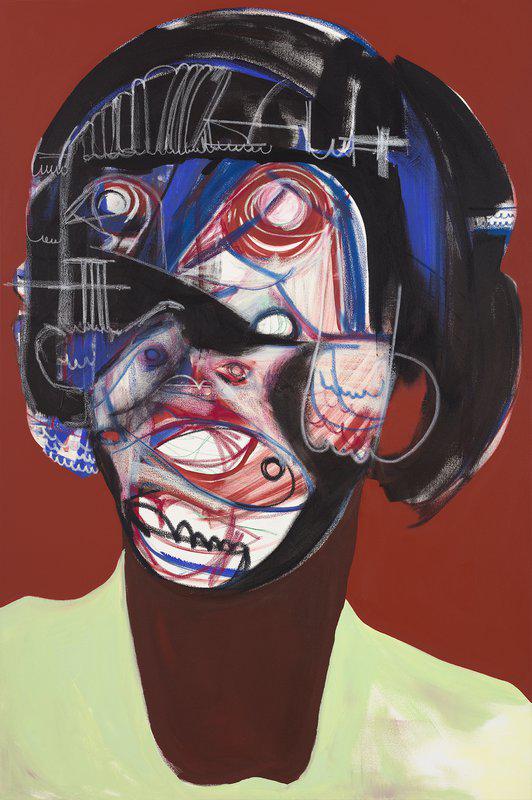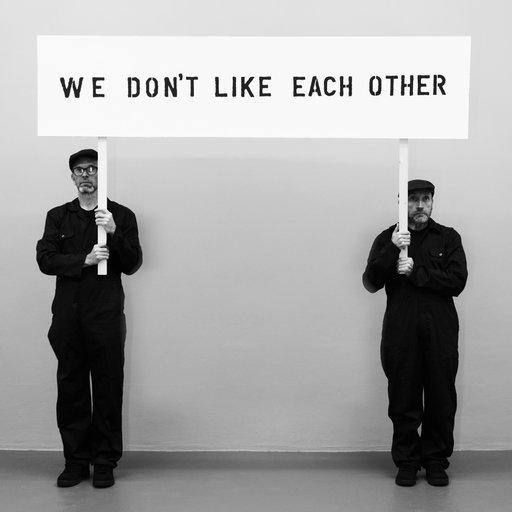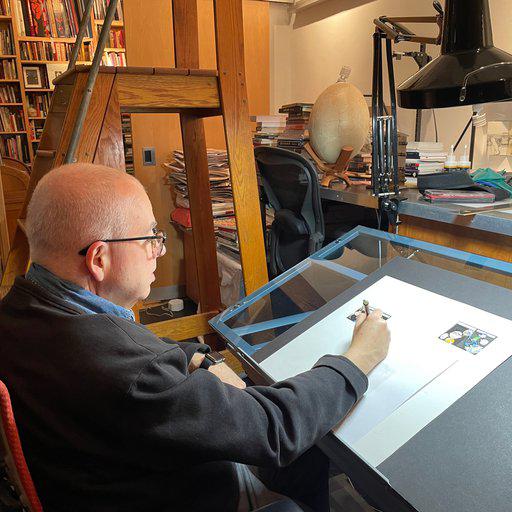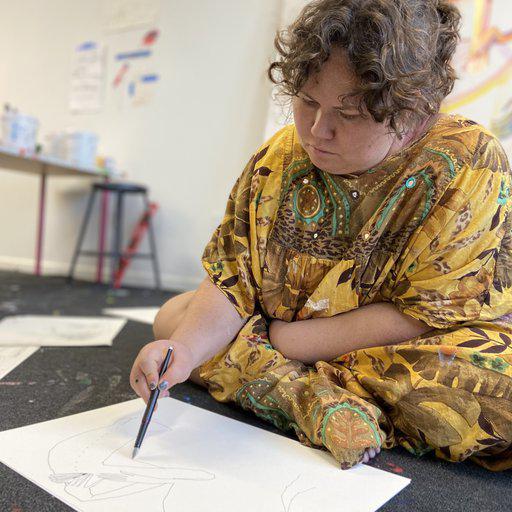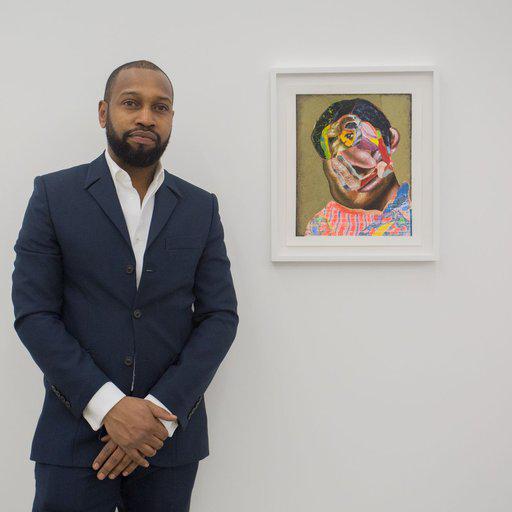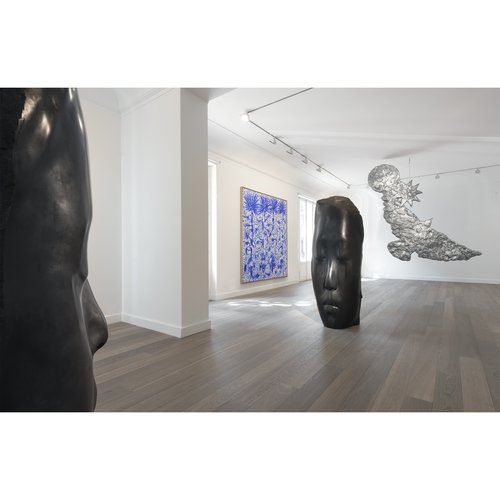Charmaine Watkiss had a serpentine route to becoming an artist: she was a shoe designer for several years, studied film and spent time helping artists to make video, then worked for two decades as a digital designer. Only in 2014 did she decide to train as an artist, graduating from the MA Drawing programme at Wimbledon College of Arts in 2018. Narrative and self-presentation are at the core of her drawing practice, which is founded on what she calls ‘memory stories’. They cast Watkiss, life-size, as the conduit for common experiences and histories connected to the African Caribbean diaspora – she is the daughter of Jamaicans who came to post-war Britain in the 1960s, when immigration from former colonies was being encouraged to help with the significant labour shortage.
History as a driver of self-identity is directly present in Watkiss’s first ‘memory story’ drawing, in which she wears a coat emblazoned with images of City of London insignia, money, docks, tobacco leaves and sugar cane. Lost/Found (2015) came out of wondering why a street close to her east London home in Bermondsey was called Jamaica Road. As Watkiss states on her website, her research revealed ‘a tale of how the borough of Southwark’s participation in the Transatlantic slave trade, and the importation of goods – particularly tobacco and sugar along the docks – helped to create the wealth in the commercial district of London which we recognise today.’ Typically, the imposingly scaled graphite and ink drawing is enhanced by carefully restricted watercolour that indicates another time and place.
Watkiss is one of over a hundred contemporary artists featured in Vitamin D3: Today's Best in Contemporary Drawing , our new, indispensable survey of contemporary drawing. We sat her down and asked her a few questions about how, why and when she draws.
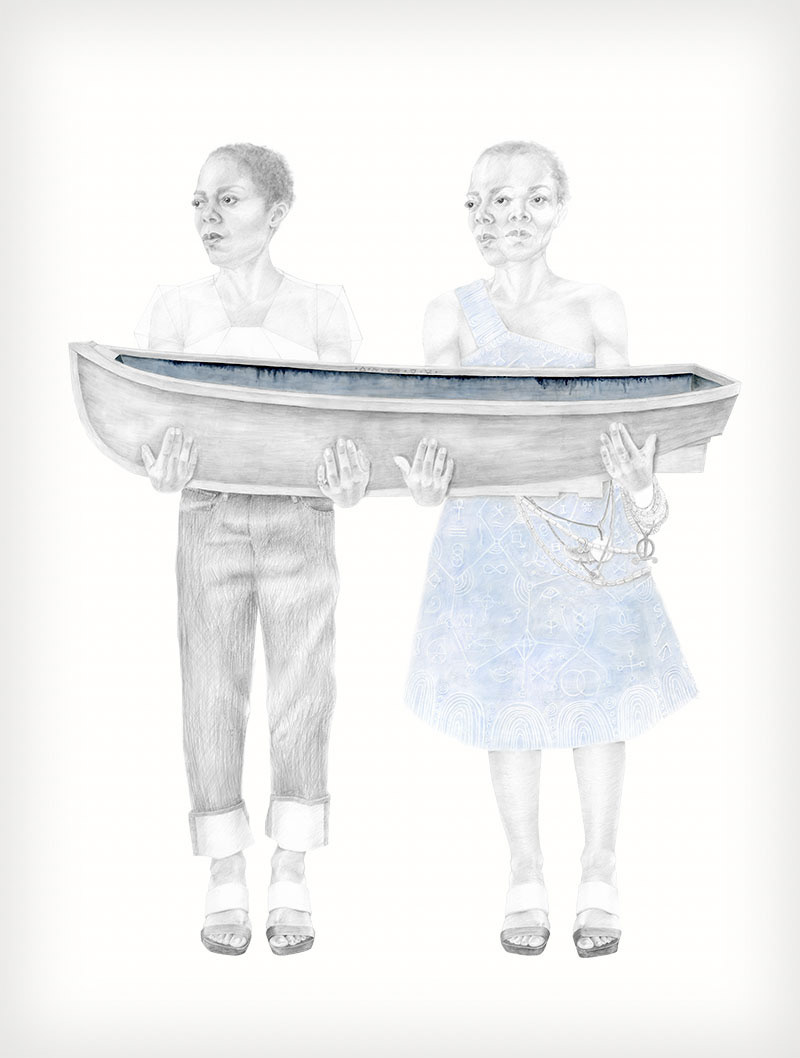 The Return
(2018) by Charmaine Watkiss
The Return
(2018) by Charmaine Watkiss
Who are you and what’s on your mind right now?
I am Charmaine Watkiss. I am working across three projects right now so my mind is very occupied – researching, planning and drawing simultaneously!
What’s your special relationship with drawing and how would you describe what you do? I love the intimacy of drawing, it feels private, and allows for attentive mindfulness. I make predominantly life sized figure drawings, I draw myself but they are not self portraits; instead I construct characters as a way of exploring ideas around diaspora, ritual, tradition, ancestry and cosmology.
Why is there an increased interest in drawing right now?
Yes, I have noticed a big interest in drawing at the moment. Perhaps because drawing can tell you something about an artist that painting cannot. I like the fact that you can see the hand of the artist, through the way they make their marks - this can tell you a lot about their nature. I like that drawing can be explored in so many ways - not just with pencil and paper but through moving image, performance etc. I studied MA Drawing at Wimbledon College of Art in London, the great thing about that course was that it attracted people from many backgrounds - architects, environmentalists, scientists, graphic designers - all with their own unique take on the practice of drawing.
What are the hardest things for you to get ‘right’? The hardest thing for me to get ‘right’ is the story - I wrestle with the details. I am a big picture person, I have a feeling of what I want to convey; the real work comes in how do I express these ideas and feelings through drawing and what symbolic language do I use in order to add layers and richness to the story I want to tell. Technically I am always challenged too, drawing the figure, particularly life sized takes stamina!
Is the immediacy of drawing part of its appeal for you? Yes! I love the immediacy of drawing, I like that I can rearrange parts of the drawing, I am always erasing and introducing new elements, sometimes the pose alters too - I might reposition an arm or adjust the gaze, something as simple as the gaze can make all the difference to the story.
 Lost/Found
(2015) by Charmaine Watkiss
Lost/Found
(2015) by Charmaine Watkiss
Can you explain the difference between drawing as a child, something we can all relate to, and drawing as an artist - something most of us cannot? When very young children draw they do so with such freedom and imagination. I completely understand why Picasso wanted to capture this sensibility in his work. Children are natural storytellers too - and they don’t get hung up on details. So, for me as an artist I do get hung up on details! But I also have moments when I completely get lost in the work, this tends to be once the drawing is at least 50% complete and I have to work on areas such as the clothing. Once I have established what feels right for these areas then I let go and really immerse myself in the process of making.
What do most people overlook when they attempt to ‘assess’ drawing? I think most people overlook the level of commitment it can take to make drawings; there is also this notion that people who draw are somehow ‘gifted’. Drawing is a practice just like any other discipline. And then there are a few who still believe that drawing is somehow secondary to painting.
When do you draw and what sort of physical, spiritual, mental or geographical place do you have to be in generally for it to work? I draw in my studio, so I go in most days and work on average between 10-6pm. I keep myself fit, so get up early, and meditate, shower, exercise - Yoga / Pilates / Do-In; prepare my lunch, have breakfast and go to the studio - so that is a 2 hour process of getting ready. When I arrive at the studio I tend to do any emails and small admin tasks; I might have a good chit chat with one of my studio neighbours, then I get going with my day. Sometimes I have a good dance in the studio to shake off the outside world, then I begin!
You can see more of Watkiss’s work via her website , as well as her gallery, Tiwani Contemporary . Meanwhile, Vitamin D3: Today's Best in Contemporary Drawing , featuring over 100 artists including: Tania Kovats, Rashid Johnson, Rebecca Salter, Toyin Ojih Odutola, Deanna Petherbridge, Christina Quarles, and Emma Talbot is available now in the store . We'll be running more interviews with artists featured in the book in the coming weeks.











